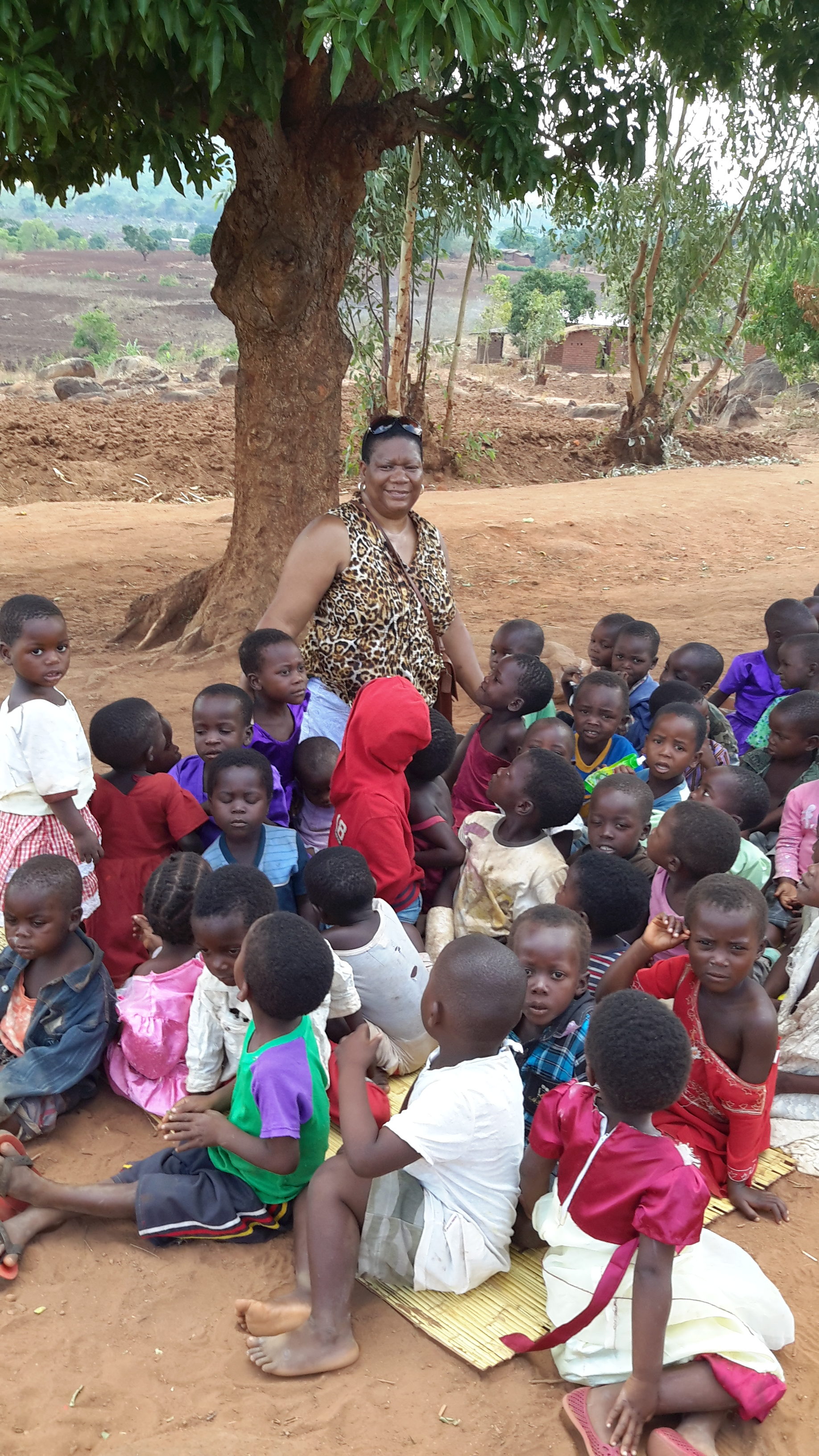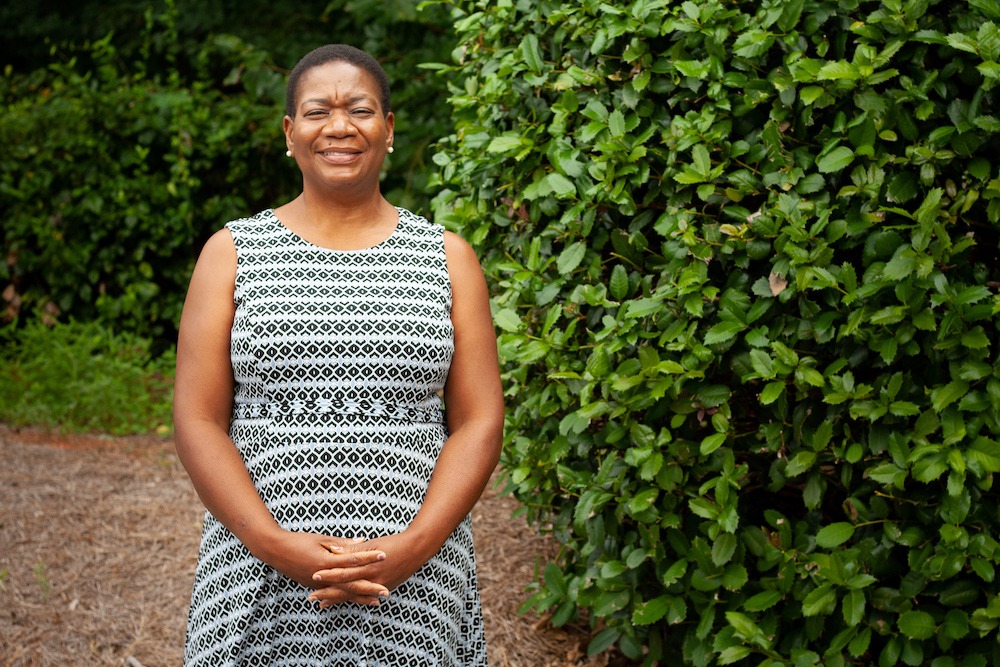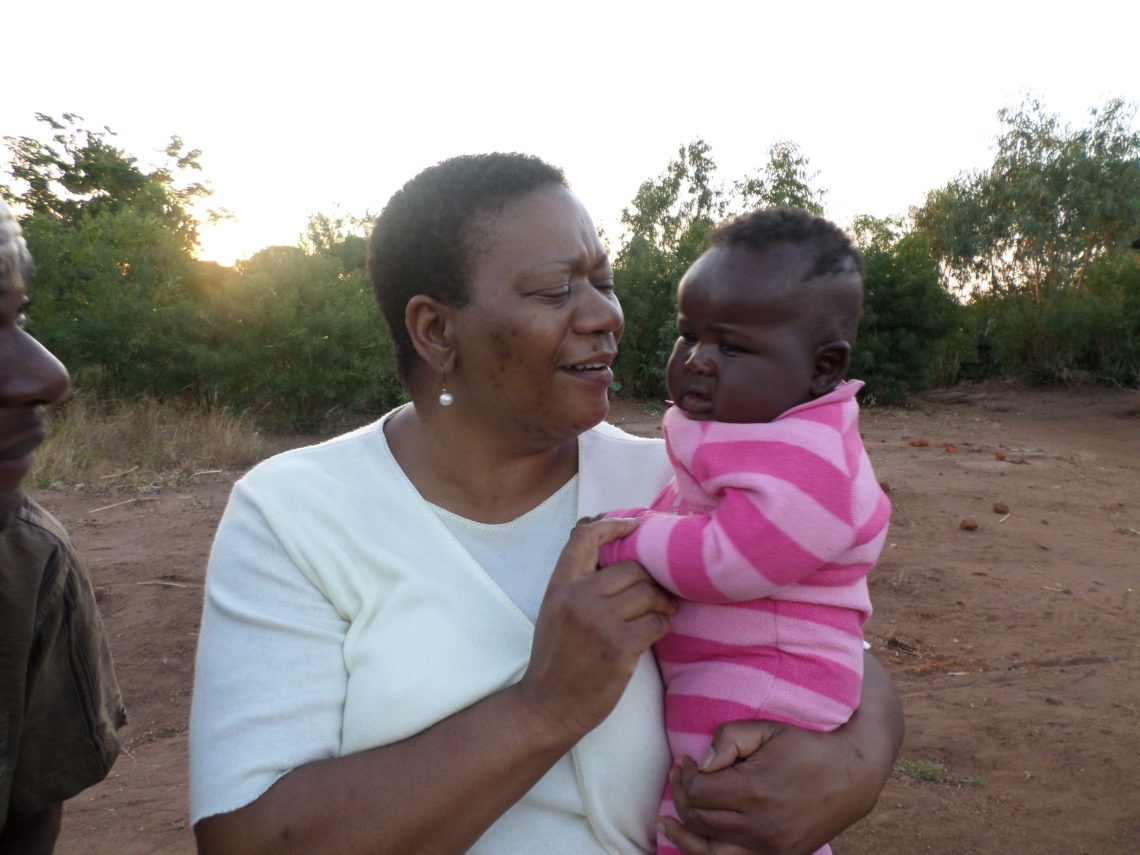About BCV

Our Story
Lawrence Bill Bwanali was the father of Jane Khembo, and Dr. Michael Chipole was her grandfather. These two men had one thing in common: a desire to help the community. The legacy that was left behind inspired Jane. She still remembers both her father and grandfather helping their communities by giving whatever they had to others. It is because of this that Jane decided to call her organization Bwanali Chipole Victory, Inc., in remembrance of her father and grandfather.
Years ago Jane Khembo began supporting and feeding some of her deceased cousins’ children. They had been left, orphaned and hungry due to the intense poverty in the region of Phalombe. Soon after she began feeding them, many others from 4 surrounding villages were brought to her attention that required the same necessities that are taken for granted in the developed world. She worked from October to December of 2011 with a local Bishop to feed children daily at the central location of the church. The vulnerable children have been receiving meals once or twice daily, depending on the finances being provided by Jane Jumbe and donors. By the end of December, 130 children under the age of five were being fed each day. At this point, Jane was no longer able to afford to take any more children and limited the age to five and under because of the lack of finances.
Back in the U.S., Jane was applying to register Bwanali-Chipole Victory, Inc. as a 501(c)(3) non-profit in order to grow the organization to meet the needs of this region in Malawi. In January of 2012, BCV, Inc. became a registered 501(c)(3) non-profit organization.
What we do
Education
Education is the cornerstone of what we do at BCV. Since 2011, we have placed emphasis on addressing this as a key tool to make a difference in the future of the children we serve. Our goal is to make a difference, one child at a time. We believe by focusing on education we can make a sustainable difference.
feeding
Food is one of the core fundamental needs of all human beings. We place direct emphasis on addressing this most basic of needs for our children. Due to the economic difficulties facing the community we serve, we are even more aware of the significance of our commitment. One of the challenges we face is malnutrition. Many of the children in our community are suffering from the effects of malnutrition.
Housing/Dorms
We are currently in the process of constructing a facility that will house 112 girls & boys upon completion. This will be a way for us to keep some of our children we serve overnight as we currently do not have the resources.
Maize & Rice Mill
It has been our goal from our inception to reliably address the needs of the children we serve through providing food, shelter, education, clothing, medical care, etc. To do this, we believe that we have to evolve from being solely reliant on donations. Our maize and rice mills have been generating revenue for over five years.
With Your Help, We are Impacting Generations
With your generosity we are able to feed and educate these children to break cycles of poverty and give these children hope for a safe and secure future.
Our Mission & Approach
Our vision for a better Malawi
The Bwanali-Chipole Victory Inc vision is to educate and strengthen the minds and bodies of the Malawian children. By providing a safe environment such as health care, good nutrition, clean water and shelter, we believe the community will be changed for generations to come.
Our mission to the people of Malawi
Our mission is to empower, inform, inspire and educate the children of Malawi to make life decisions that would eliminate the spread of HIV/AIDS within their community. Our focus is on dealing with the issues of early death, poverty, parentlessness, hunger, disease and homelessness.
Our plan to help Malawi in 4 ways
Integrity: The organization and its members seek to build a reputation of trustworthiness and a reliance on genuine civility.
Independence: The organization seeks to enable the children and individuals to whom we provide assistance, the ability to succeed independently. By tending to the most basic of human needs such as food, shelter, and clothing, we can enable people to enter a better phase of livelihood.
Cooperation: The organization and its members commit to make meaningful partnerships and joint missions with other organizations including local and regional municipalities, with the understanding that the missions and partnerships are to make better the lives of the children and individuals of BCV Inc.
Effectiveness: The organization and its members commit to only carrying out endeavors that are proven to bettering the lives of the children and individuals in Phalombe, Malawi. Each endeavor shall be evaluated for the degree to which it is effective at delivering on the purpose of the organization.
About Malawi
Health
The sad truth in Malawi is that infant mortality rates are high and life expectancy at birth is about 52 years. The prevalence of HIV/AIDS in adults is high. It is estimated that 920,000 adults were living with the disease in 2009.
HIV/AIDS kills approximately 68,000 people every year (as of 2007). Approximately 250 new people are infected each day, and at least 70% of Malawi’s hospital beds are occupied by HIV/AIDS patients.
The people of Malawi have a very high risk of getting major infectious diseases such as typhoid fever, hepatitis A, malaria and dengue fever.
Education
Malawi has an 8-4-4 education system. This means there is primary school (known as Standard 1 to Standard 8), secondary school (known as Form 1 to 4) and university education. A child is officially allowed to enter primary school at 6 years old, and primary education in Malawi is compulsory.
However, education no longer stresses the academic preparation necessary to enter secondary school or universities. The focus is now on agriculture and practical training since few students go on to secondary school or university. Most students begin work immediately after primary school. Secondary and university education have seen dramatic growth but neither educational sector comes close to meeting Malawi’s educational needs for a well trained labor force in an advancing world.
Additionally girls in Malawi face a higher prevalence of gender-based violence, and often they lack the safety while traveling to school each day. This is reflected in the dropout rates being higher for girls than boys.

Our Founder
The old adage goes: Some are born great, some achieve greatness, and some have greatness thrust upon ’em. Jane Khembo was born and raised in Blantyre, Malawi and spent a lot of time with her mother’s family in Phalombe, Malawi. Jane has two sons named Stewart and Kelvin and one daughter, Tadala. Jane moved to the US years ago when her children were very young. She is very much involved with the community, serving in many ministries through her local church. She also has a strong passion for missions. Her passion is to see people’s lives change for the better.
From an early age, Jane Khembo, founder of Bwanali-Chipole Victory, Inc., knew that her life’s mission would be to give back to her community in Phalombe, Malawi. However, it wasn’t until she went home in 2010 that she began to see her life’s dream take shape before her eyes. After many years of financially supporting her family back in Malawi, Jane saw that poverty, sickness and hunger affected not only her family, but also the region of Phalombe.
In October 2011 she made a trip to Malawi where she decided to take a bigger role in combating the lack in Phalombe. Jane realized that her desire to help meet the needs of those impacted by the devastating effects of sickness and poverty wasn’t enough to change the situation in Malawi; she would need co-laborers. Orphans and other vulnerable children from four surrounding villages are now traveling daily to a church in a central location to obtain a nourishing meal. Jane’s vision is to create a campus that provides nutritious meals, shelter, education, and healthcare to Malawian children orphaned by the HIV/AIDS epidemic, significant lack and pure poverty. Jane’s mission requires the support of donors, local authorities, non-governmental organizations (NGOs), and volunteers. In January of 2012, BCV, Inc. became a registered 501(c)(3) non-profit organization.

